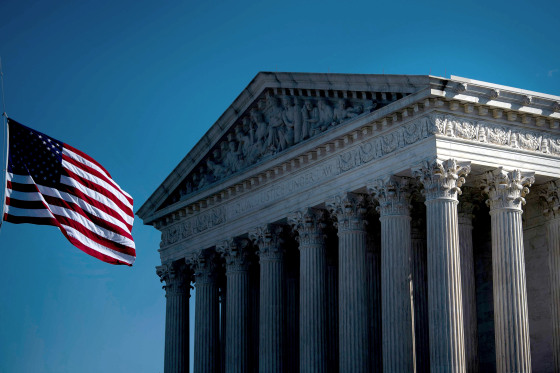The U.S. Supreme Court agreed Friday to take up a challenge to Arizona's election laws that reject ballots cast in the wrong precinct and forbid anyone but family members or caregivers to turn in another's mail ballots.
The court did not put the case on a fast track, so it will not be heard before November, and the laws will apply to this year's general election.
The state has defended the measures as necessary to prevent fraud. Democrats challenged them in court, arguing that they discriminate against minority voters.
Under one provision, voters who go to the wrong precinct will be directed to the correct place to vote but allowed to cast a provisional ballot. It will not be counted unless the voter lived in that precinct. The other provides that only the voter, family members or caregivers can collect a person's mail ballot.
"Prohibiting unlimited third-party ballot harvesting is a commonsense means of protecting the secret ballot," the state told the justices in court filings. The state said the out-of-precinct rule is intended to prevent multiple voting.
But in their challenge to the laws, Arizona Democrats said state officials change polling places more often in minority neighborhoods and locate them in places intended to cause mistakes. Minorities are less likely to own homes and likely to move more often, resulting in the need to change polling places.
Minority voters are also more likely to need help turning in their ballots, the challengers said. In many states where the practice is legal, community activists offer ballot collection to encourage voting.
A federal judge in Arizona rejected the challenges, but the 9th U.S. Circuit Court of Appeals reversed that decision. However, the appeals court put its ruling on hold, allowing the laws to remain in effect for now.
Ned Foley, a professor and an election law expert at the Mortiz College of Law at Ohio State University, said the court's ruling will affect similar restrictions in other states and potentially set the framework for constitutional challenges to voting rules generally. The federal courts have long struggled with how to assess challenges alleging vote denial under both the Constitution and the Voting Rights Act. "These are two of the biggest areas of uncertainty in voting law," Foley said.

